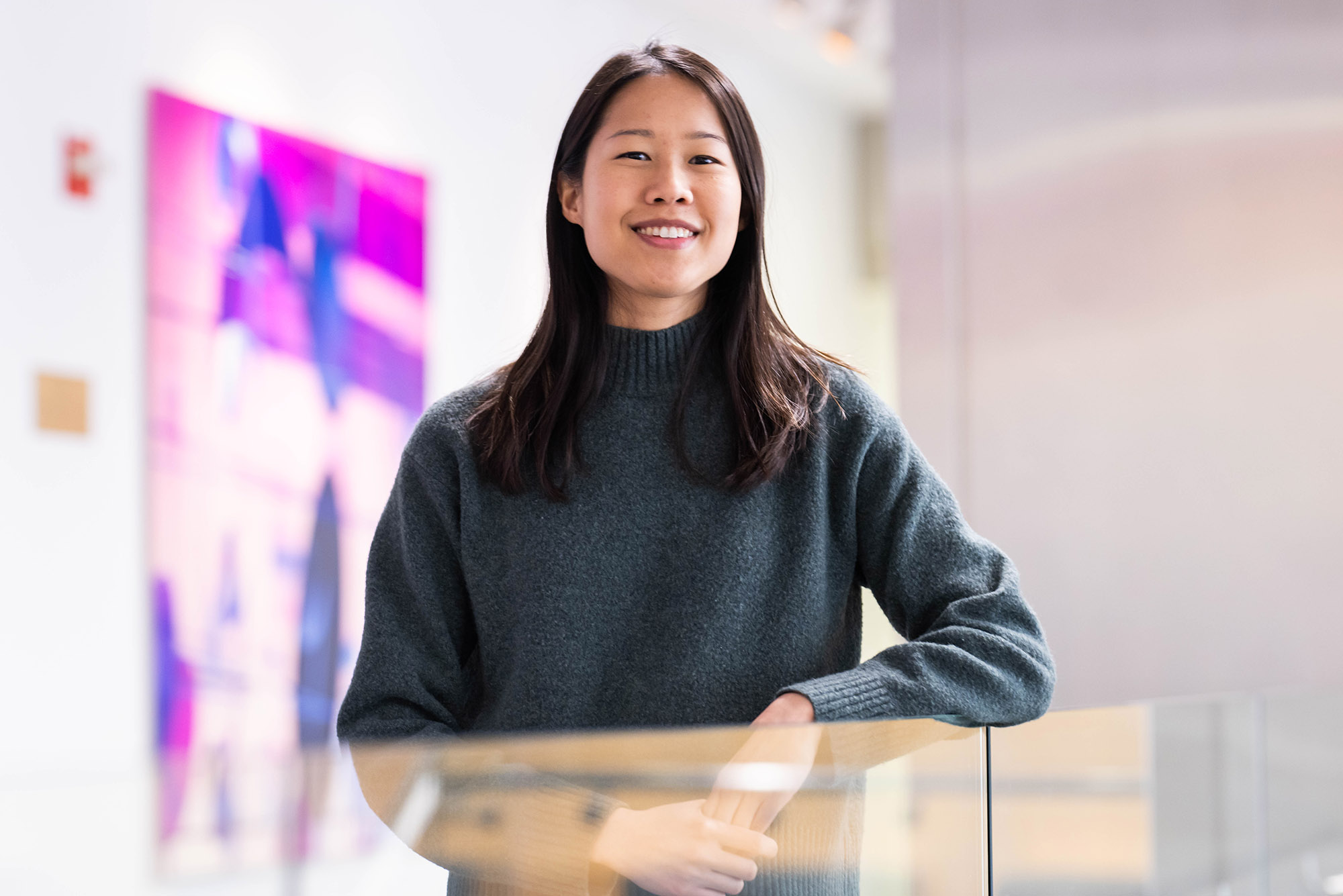BU Biologist Receives 2025 Sloan Research Fellowship
The prestigious award will support Lynne Chantranupong’s work investigating how brain cells remain healthy over a lifetime, and how neurodegenerative diseases disrupt them

Molecular biologist Lynne Chantranupong studies a specialized part of brain cells, called the lysosome, responsible for clearing out waste that accumulates from regular brain functions. It’s often impacted by mutations that cause neurodegenerative diseases.
BU Biologist Receives 2025 Sloan Research Fellowship
The prestigious award will support Lynne Chantranupong’s work investigating how brain cells remain healthy over a lifetime, and how neurodegenerative diseases disrupt them
In support of her quest to understand the inner workings of brain cells, Boston University molecular biologist Lynne Chantranupong has been named a 2025 Sloan Research Fellow. She is among the 126 scientists from the United States and Canada who received the highly competitive prize.
With the honor, the Alfred P. Sloan Foundation recognizes standout young scientists whose work is promising and innovative. The winners each receive $75,000 over two years. To date, 60 faculty from BU have received a Sloan Research Fellowship.
Chantranupong joined BU’s faculty in January 2024 and established the Chantranupong Lab, where she’s launched multiple research projects to investigate cellular mechanisms in the brain.
“I’ve always been motivated to study signaling and metabolism of neurons, cells within the brain, that have many qualities that set them apart from other cells,” says Chantranupong, a College of Arts & Sciences assistant professor of biology. She is trying to answer fundamental questions about how brain cells remain healthy and what happens when things go wrong.
“One of the most impressive qualities of neurons is that they actually survive our entire lives. Unlike most other cells in our body, they have to stay healthy from birth until death,” she says. That means that neurons likely need to change their internal cellular pathways and signaling inside themselves to maintain their longevity—processes that are completely unique to brain cells.
“It’s impressive that the cells need to stay alive for so long, so our understanding of the inner workings of neurons is something I’m really driven to advance,” she says. The award from the Sloan Foundation will help keep the wheels of her new lab moving, and Chantranupong says she is grateful for the additional support.
This award is a wonderful testament to the outstanding work being conducted by Lynne Chantranupong. The support from this 2025 Sloan Research Fellowship will advance her research and contribute to the strong program in neuroscience at Boston University.
“This award is a wonderful testament to the outstanding work being conducted by Lynne Chantranupong,” says Pamela Templer, CAS distinguished professor and chair of biology. “The support from this 2025 Sloan Research Fellowship will advance her research and contribute to the strong program in neuroscience at Boston University.”
One focus for Chantranupong is elucidating how a specialized part of the cell, called the lysosome, gets rid of waste, and how this waste differs across neurons.
“It’s like a whole waste breakdown and recycling process that’s happening continuously in all your cells. But in neurons, this process needs to be efficient and adaptable to keep our brains healthy,” she says.
The “waste” that collects is a regular part of being alive; it can be proteins that have accumulated or old parts of a neuron that are damaged and need getting rid of. The lysosome breaks down the old molecules into basic components, and returns the useful building blocks back to the cell. This process, especially in the brain, is something that’s important to understand in the context of identifying and treating diseases like Parkinson’s and Alzheimer’s, Chantranupong says.
“Many of the mutations that cause neurodegenerative diseases impact the lysosome specifically, so we need to understand how it works in a healthy state to then understand what happens in disease,” she says. “We hope to use a lot of tools to study the lysosome and characterize how it changes.”
Chantranupong recently started collaborating with Ji-Xin Cheng, a BU College of Engineering professor of biomedical engineering and of electrical and computer engineering, to image the contents of a single lysosome at higher resolutions. The Sloan Foundation award will support their collaboration and bolster Chantranupong’s ongoing research projects.
“We are thrilled that Professor Lynne Chantranupong has been named a 2025 Sloan Research Fellow,” says Stan Sclaroff, dean of Arts & Sciences. “Lynne’s research uses an innovative multidisciplinary approach to study how neuronal adaptations contribute to disease. The Sloan Fellowship recognizes her creative approach and the transformative potential of her research.”


Comments & Discussion
Boston University moderates comments to facilitate an informed, substantive, civil conversation. Abusive, profane, self-promotional, misleading, incoherent or off-topic comments will be rejected. Moderators are staffed during regular business hours (EST) and can only accept comments written in English. Statistics or facts must include a citation or a link to the citation.